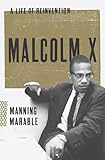|
By Randy Shannon, CCDS

choice "Everyone has the right to work, to free of employment, to
just and favorable conditions of work and to protection against
unemployment."
- United Nations Universal Declaration of Human Rights, December 10, 1948
I. Introduction
The "Great Recession" that began in 2007 has caused the greatest
percent of job losses since the Great Depression of 1929. This crisis is
the end of an era of unrestrained 'neo-liberal' capitalism that became
public policy during the Reagan administration. The crisis marks a new
level of instability with the growth of a global financial elite that
targeted US workers and our trade unions after World War II. |
|
Order Our
Full Employment Booklets
 |
|
Capitalism may well collapse under its own excesses, but what would one
propose to replace it? Margaret Thatcher's mantra was TINA...There Is No
Alternative. David Schweickart's vision of "Economic Democracy"
proposes a serious alternative. Even more fundamentally, it opens the
door to thinking about alternatives. His may or may not turn out to be
the definitive "successor system," but he is a leader in breaking out of
the box. |
|
Quick Links...
CCDS Discussion
|
Solidarity Economy:
What It's All About

|

California Red:
A Life in the American Communist Party
by Dorothy Ray Healey
University of Illinois Press
Paperback

List Price: $30.00
Our Price: $13.00
Buy Now
|

Malcolm X: A Life
of Reinvention
by Manning Marable
Viking Adult
Hardcover

List Price: $30.00
Our Price: $14.47
Buy Now
|

Planet of Slums
by Mike Davis
Verso
Paperback

List Price: $19.95
Our Price: $8.00
Buy Now
|
Carl Davidson's Latest Book:
New Paths to Socialism

Essays on Mondragon, Marx, Gramsci and the Green and Solidarity Economies |
|
|
|
An Invitation to CCDSers and Friends...
 Turmoil at the Top, Turmoil at the Top,
Anger at the Base...
We're the Committees of Correspondence for Democracy and Socialism...Do you have friends who should see this? Pass it on...Do you have a blog of your own? Others you love to read every day? Well, this is a place where you can share access to them with the rest of your comrades. Just pick your greatest hits for the week and send them to us at carld717@gmail.com! Most of all, it's urgent that you oppose austerity, make solidarity and end the wars! We're doing more than ever, and have big plans. So pay your dues, make a donation and become a sustainer. Do it Now! Check the link at the bottom... |
|
Debt Showdown as Political Theater vs the Poor

Democracy Now Interviews Richard Wolff
AMY GOODMAN: So we are watching this dance in Washington. The House is going to vote today around the issue of the debt ceiling. The Senate says it's dead in the water. President Obama is vowing to veto. What does this all mean?
RICHARD WOLFF: Well, basically, your word "dance" is perfect. This is theater. This is political theater in which the two parties are posturing for the election coming next year, using this occasion-to put it in perspective, the number of times the government has raised the debt ceiling since 1940? Ninety, almost twice a year. This is a normal, automatic procedure. Every president, Republican and Democrat, has asked for it. When they ask, typically, the representatives of the other party say, "Well, you're not managing the government real well," and then they vote for it. And that has happened over and over again. So what you're seeing is a decision, politically, to make it theatric, out of what otherwise would have been a normal procedure.
A hundred years ago, the Congress said, in order to control the government and not to allow businesses and rich people to be able to invest in government money easily, we're going to have the government limit how much can be borrowed. That was the idea. Now it became automatic, as we became a debt society-excuse me-and so, suddenly, the Republicans basically decided to make theater, to run their campaign a little early this year, and to slow it all down and make a big to-do.
The world expects that this will have to be undone in a few days or weeks. They're kind of amazed to see it being stretched like this, this old, normal procedure. And the assumption is that the politics in the United States has become as dysfunctional as our economic situation. And so, that's the danger, that this rigmarole, this theater, is really a sign that normal life in the United States has been disrupted on a scale that people haven't seen before....
|
|
Here's What We Need To Do:
An American Jobs Agenda

By Leo Gerard and Leo Hindery Jr.
Alternet.org
America is facing a catastrophic jobs crisis. Not since the Great Depression has official unemployment hovered above nine percent - where it is today - for more than 20 months. Millions of American have given up looking for a job altogether. Even worse, real unemployment is more than 18%. Yet Washington overall has obviously yet to embrace a large-scale job creation agenda. Even if we reach consensus around the deficit - the only economic issue even getting any attention these days - it will do little to help the 29 million Americans who are unemployed in real terms. If we do not seriously tackle jobs, our country may never regain its competitive global edge.
We recently co-chaired a Task Force on Job Creation, seeking real solutions to the jobs crisis plaguing our country. This group of policy makers, economists, business and labor leaders developed a series of 15 immediate recommendations for reversing the crisis, outlined in a new report, "Vision for Economic Renewal: An American Jobs Agenda." We found there are six vital policy areas that our government must address in order to create millions more jobs now: manufacturing, trade and globalization, U.S.-China trade, the infrastructure crisis, jobs in the green economy, and youth unemployment.
Washington is often a city of Chicken Littles, which makes ringing the alarm bell difficult. But once Washington wakes up from its deficit hangover, politicians will realize something that most Americans have known for months: The sky has already fallen.
Here's what we can and need to do:...
|
Oslo Shooter A Frightening Reminder
of the Radical Right's Terrorist Threat

By Heidi Beirich
SPLC Hatewatch
July 24, 2011 - The horrific events that took place in Norway this past Friday- a huge bombing in central Oslo closely followed by a bloody shooting rampage on nearby Utoya island that left 93 dead-are a sobering reminder of what extreme radical-right beliefs can drive some to do. And the threat is not confined to Norway or Europe. Exactly the same ideas that motivated the Oslo shooter to take up arms are popular in radical-right circles on this side of the Atlantic.
Anders Behring Breivik, 32, described by Norwegian police as a right-wing Christian fundamentalist, was apparently driven to act by hatred of Muslims and fears of multiculturalism. Breivik's 1,500-page manifesto, 2083: A European Declaration of Independence, equates liberalism and multiculturalism with "cultural Marxism," something Breivik says is destroying European Christian civilization. Posted online just before the attacks, the manifesto is described in The New York Times as a diary of Breivik's months of planning.
Writing under the Anglicized name "Andrew Berwick," Breivik predicted a massive war that would kill or injure more than a million people as he and his small group seize "political and military control of Western European countries and implement a cultural conservative political agenda." Breivik's manifesto also describes a secret April 2002 meeting in London to reconstitute the Knights Templar, a military order active in the medieval Crusades, that was attended by "representatives" of European countries and one "European-American." The document does not name the attendees, and authorities are unclear the meeting actually occurred....
|
New Book: Hell No: Your Right to
Protest in 21st Century America
 Michael Ratner of the Center for Constitutional Rights discusses his new book with Paul Jay of Real News Network. Michael Ratner of the Center for Constitutional Rights discusses his new book with Paul Jay of Real News Network.
PAUL JAY, SENIOR EDITOR, TRNN: Welcome to The Real News Network. I'm Paul Jay, coming to you from New York City. We're at Rizzoli Bookstore in New York, which generously provided the space. A year ago in Toronto, more than 1,000 people were arrested while they protested the G-20 that was taking place. Most of them were let go within a few days. And that was part of the problem. No charges were laid, and there was thus no way for people--whose rights the Ontario ombudsman said were violated--could have any recourse. In fact, the ombudsman said the arrests at the Toronto G-20 was the most massive compromise of civil rights in the history of Canada. But is this only happening in Toronto? Or is this in fact part of a North American-wide strategy on how to deal with dissent? And what about the right to mass protest right across the continent? Now joining us to talk about all of this is Michael Ratner. He's the president of the Center for Constitutional Rights. He's also the co-author of a new book, Hell No: Your Right to Dissent in 21st-Century America, which he did together with Margaret Ratner Kunstler. Thanks for joining us.
MICHAEL RATNER: Good to be with you, Paul.
JAY: So, first of all, talk a bit about what inspired you to produce the book?
RATNER: Since I'd been a young activist, protest has been a key part of my life and a key part of how we actually change what's going on in the United States and across the world, whether from Vietnam to Central America, to the beginnings of the war with Iraq, where we really had millions of people in the street all over the world. So to me, protest is really a fundamental underpinning of how we make progressive social change in the world. And, of course, we saw recent examples in Egypt in Tahrir Square. We saw a recent effort at that in Madison, Wisconsin, where they were protesting the cutbacks on workers. So it just is the main method, really, that people have, which is, really, acting with their feet in an organized way out in the streets....
|
Save Us From the 'Business Guy' Candidates

By Carl Davidson
Beaver County Blue
Some things just drive you nuts.
Take Mitt Romney. Yesterday, July 28, the GOP's presidential wannabe toured Screen Machine, a factory in Pataskala, Ohio, just outside Columbus. The plant make heavy construction equipment, rock crushers to be exact.
Romney and the owners, Doug and Steve Cohen, held a typical photo-op. Mitt took the occasion to blast both Obama and 'government' as 'bad for business.'
Really? What did Mitt have in mind? A wimpy stimulus package? A failure to build more infrastructure? In that case, he might have a point.
But no, the real problems are environmental regulation, labor safety codes and health care. In other words, with more pollution and more unsafe conditions at work, and less health care to deal with the consequences, business could surge ahead.
There's not any truth to that claim, but that's not the worst of it.
First, there's the irony that Obama's health care plan is basically a national version of Romney's Massachusetts Plan. If we could scrap both and replace them with 'Medicare for All,' yes, it would be better for both workers and business--save for the health insurance firms.
But the real clincher is the story of Screen Machines, where Mitt, the tough-minded, pragmatic business guy candidate, was delivering his words of economic wisdom. Here's the Washington Post on the topic:
"Yet it's been the government - and Obama's policies in particular - that has helped propel Screen Machine's growth at its sprawling new headquarters here, even during the recession. The company, which builds heavy-duty crushing and screening machines used in construction, mining and recycling, received four stimulus awards totaling $218,607. It is also benefiting from a 10-year deal with local and state governments to not pay taxes on its property, equipment or inventory, according to public records."
We need to make a minimum requirement of all elected officials that they at least have the ability to blush when feeding us a lot of nonsense. Of course, that might wipe out most of Congress, and a few in the White House, too. But then we'd have some open slots for politicians who count voters rather than dollars.
|
Killing Spurs Upsurge in Class Struggle in China

By Ben Blanchard
Reuters
BEIJING - July 27 (Reuters) - Angry residents in a southern Chinese city went on the rampage after officials apparently beat to death a disabled fruit vendor, a state media said on Wednesday, in the latest incident of social unrest in the world's second-largest economy.
The China Daily said that thousands of people gathered on the streets of Anshun in Guizhou province on Tuesday afternoon, throwing stones at police and overturning a government vehicle.
The riot was sparked after urban management officers -- a quasi-police force that enforces laws against begging and other petty offences -- were suspected of beating the vendor to death, the newspaper said.
"The unidentified vendor died in front of the gate of a market ... which led to the gathering of the local people," it cited a government statement as saying.
"Before the incident occurred, urban management officers were working in the area," it added, saying the statement gave no other details.
The newspaper showed a picture of an urban management vehicle which had been overturned, along with smashed windows and doors that had been torn off.
Xinhua news agency said around 30 protesters and 10 police officers were injured in the unrest....
|
Music Review - Field Songs:
William Elliott Whitmore

By Alexandra Fletcher
Paste Magazine
Modern folk acts have created a more accessible version of roots music, blending alt-rock and acoustic, throwing in fiddle or banjo and a raw, raspy voiced frontman. And that's all well and good. But some artists are still fundamentalists.
Taking it back to the simple sounds of a cowboy at a campfire, William Elliott Whitmore is one of those purists. There's something graceful and aged about his latest record, Field Songs. Not to say he's old by any means, but the simplicity of his music is so powerful he sounds like an old soul, far beyond his 33 years.
When he opens the album with "Bury Your Burdens In The Ground," singing, "If you've got burdens don't carry them/ just bury them in the ground/ If you're hurting don't worry I'll try to be around," you can instantly hear the resilience in voice. His pain is believable, and you can't help but want to follow his path to solace.
That's the power behind Field Songs. Whitmore's boasting bluesy vocals, sung through guitar or banjo parts, painting pictures of pain, paired with his offering of emotional refuge through the basics of nature....
|
|
Become a CCDS member today!
 The
time is long past for 'Lone Rangers'. Being a socialist by your self is
no fun and doesn't help much. Join CCDS today--$36 regular, $48
household and $18 youth. The
time is long past for 'Lone Rangers'. Being a socialist by your self is
no fun and doesn't help much. Join CCDS today--$36 regular, $48
household and $18 youth.
Better yet, beome a sustainer at $20 per month,
and we'll send you a copy of Jack O'Dell's new book, 'Climbing Jacobs
Ladder,' drawing on the lessons of the movement in the South in the
1950s and 1960s.
Solidarity, Carl Davidson, CCDS |
|
|